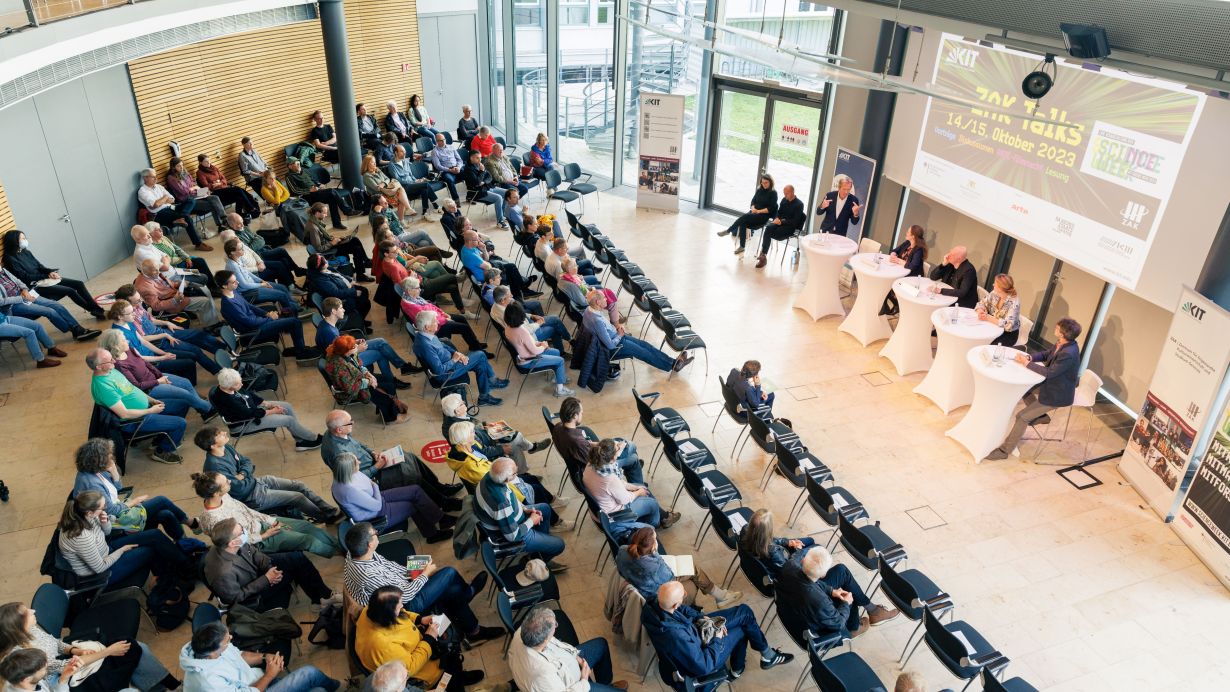A key academic institution at the Karlsruhe Institute of Technology (KIT) is changing its name and sharpening its focus. Effective October 1, 2024, the former ZAK | Center for Cultural and General Studies is now called “General Studies. Forum Science and Society (FORUM).” With its new name, the institution is positioning itself as a central platform for interdisciplinary teaching, dialogue, and scientific analysis of social problems, and raising its profile as an intermediary between academia and the public.
In times of global crisis and upheaval, scientific knowledge is the object of both rising expectations and growing skepticism. An important factor in effectively guiding the process of democratic opinion formation is understanding what scientific expertise can and cannot do. The ZAK program’s years of refinement and its renaming to FORUM are an acknowledgment of this situation.
“Using specific science- and technology-related debates as a basis, we aim to promote ongoing discussion about the tensions between academia and the public among students, scientists, actors in journalism, government and industry, and interested members of the public, and to provide all sides with the skills they need to work with scientific knowledge in public debates,” said Senja Post, Scientific Director of the FORUM and professor of science communication at KIT’s Institute of Technology Futures, in describing the FORUM’s guiding principle.
Science: Source of Topics for Public Debate
With interdisciplinary teaching, public events and innovative social research, the FORUM strives to provide new ideas for nuanced and fact-based discussion of pressing issues between academia and the public. “In social disputes, statements by scientists are often assessed according to their political and social implications and not according to purely scientific criteria,” said Post. “In this respect, we hope to introduce more objectivity into polarized discussions.”
New Supplementary Program on Science, Technology and Society
A key course offering at the FORUM is its new interdisciplinary program on science, technology and society, a supplementary course of study that prepares students and doctoral researchers to deal with the challenges that arise where science meets society. Gaining perspectives from philosophy, psychology and social and cultural sciences will empower students to make informed research, development and management decisions.
The new program will begin in the 2024/25 winter semester. It supplements each student’s main course of study, extends over multiple semesters and can vary in duration. A series of lectures and a preliminary seminar introduce the subject of the interplay between science, technology and society; a selection of in-depth seminars follows. The course offering is intended not only for KIT students but also for those at the Karlsruhe University of Music, the Karlsruhe University of Education and the Karlsruhe University of Arts and Design. Registration is possible at any time, and counseling is available. Credit points from the FORUM’s courses can be applied toward a student’s degree.
Public Events and Discussion Formats
Research activities at FORUM are focused on the relationship between academia and the public. Current projects are looking at how the German public’s attitudes toward the energy transition are changing and how moralizing in public communication influences the discourse on issues such as climate change, energy security or food security.
The FORUM will build on the tradition established by the ZAK, promoting dialogue between academia and the public on socially relevant issues. Lectures and discussions at KIT encourage those in attendance to reflect on the relationship between academia and society and to look for solutions to the pressing issues affecting our future.
More information:
About the new name (in German)
About the supplementary program on science, technology and society (in German)
Being “The Research University in the Helmholtz Association”, KIT creates and imparts knowledge for the society and the environment. It is the objective to make significant contributions to the global challenges in the fields of energy, mobility, and information. For this, about 10,000 employees cooperate in a broad range of disciplines in natural sciences, engineering sciences, economics, and the humanities and social sciences. KIT prepares its 22,800 students for responsible tasks in society, industry, and science by offering research-based study programs. Innovation efforts at KIT build a bridge between important scientific findings and their application for the benefit of society, economic prosperity, and the preservation of our natural basis of life. KIT is one of the German universities of excellence.

